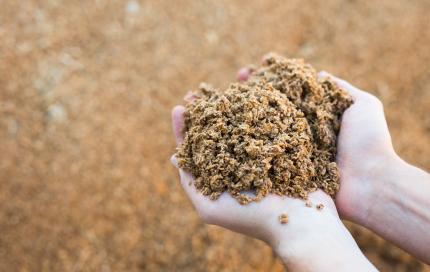The European project B-Resilient gave SMEs the opportunity to apply for support for innovative projects in the field of biomass valorization. Two calls were launched, with three Flemish companies securing subsidies: Trotec, NovelYeast, and B3ET. In two previous articles, you could read more about Trotec's project and NovelYeast's project. In this article, it is B3ET's
ABOUT THE PROJECT
The VAN-APPLE TREE project aimed to convert the biomass of uprooted apple trees, which are currently mostly burned, into a portfolio of high-quality, bio-based ingredients, with vanillin as the initial target. By combining green extraction, lignin pretreatment, and cascading valorization, the consortium sought to replace fossil-based chemicals, create new revenue streams, and reduce CO₂ emissions.
The project partners included B3ET (Bio-Based Business Ecosystem Transformer); an SME founded in 2022 with three employees that converts apple wood biomass into bio-based products, and Plinius Labs; an SME specializing in natural chemistry and optimizing pretreatment methods for biomass conversion. Lastly, Odisee Hogeschool and VITO were also involved in the project. Together, these partners formed a compact value chain from raw material to product application, firmly anchored in Flanders.
RESULTS
In the project, a method was developed to extract lignin from apple wood under ‘natural’ conditions, in accordance with EU regulations for natural aromas. The initial plan to subsequently produce natural vanillin from the lignin proved unfeasible. Analysis showed that apple wood lignin contains insufficient guaiacyl, which is necessary as a precursor for vanillin. Alternative valorization routes for the entire tree were explored, resulting in three interesting possibilities:
- extraction of antioxidant polyphenols
- production of cosmetic lignin
- production of OSB fibers for the wood industry and cellulose pulp for the paper industry. These options will be further explored and developed after the project
An LCA analysis indicated that valorizing uprooted apple trees leads to a reduction of approximately 2.75 tons of CO₂ emissions per ton of processed biomass. This reduction is due to avoiding the burning of apple trees, the lower emissions from antioxidant extraction compared to fossil-based antioxidants, the use of upcycled wood in OSB production instead of new wood, and the use of cellulose-rich apple wood pulp instead of traditional kraft pulp for paper production.
Although the initial plan for vanillin production did not succeed, the project nevertheless created interesting valorization pathways. A strong regional network was also built between apple tree growers, research institutions, and industry.







